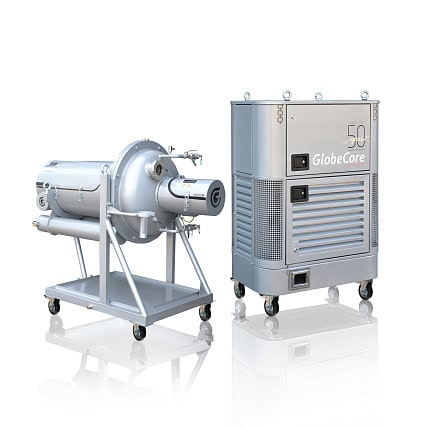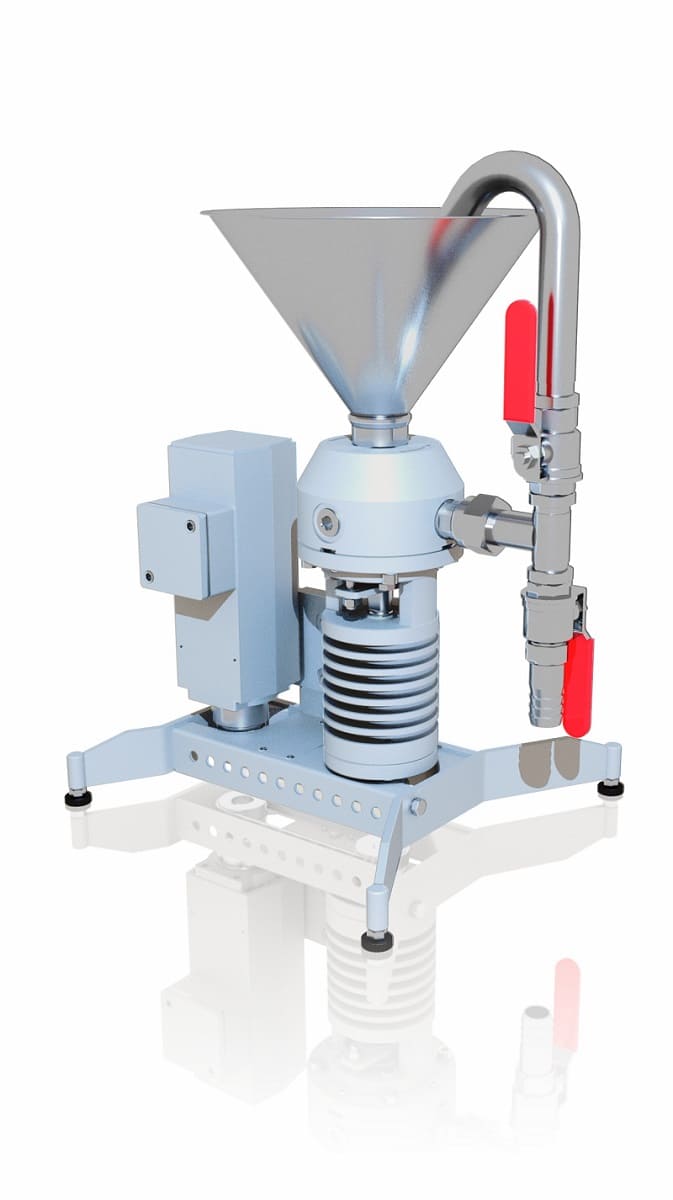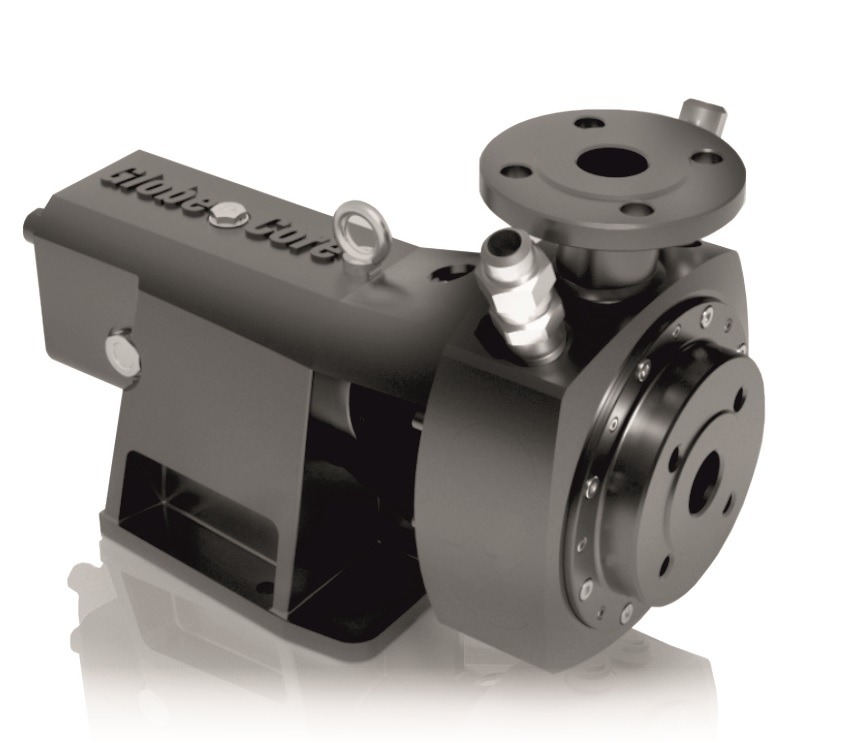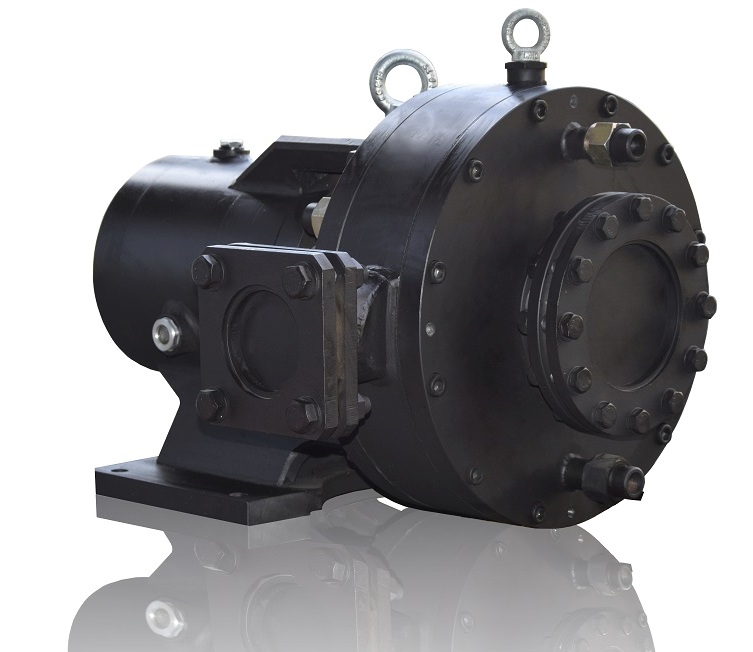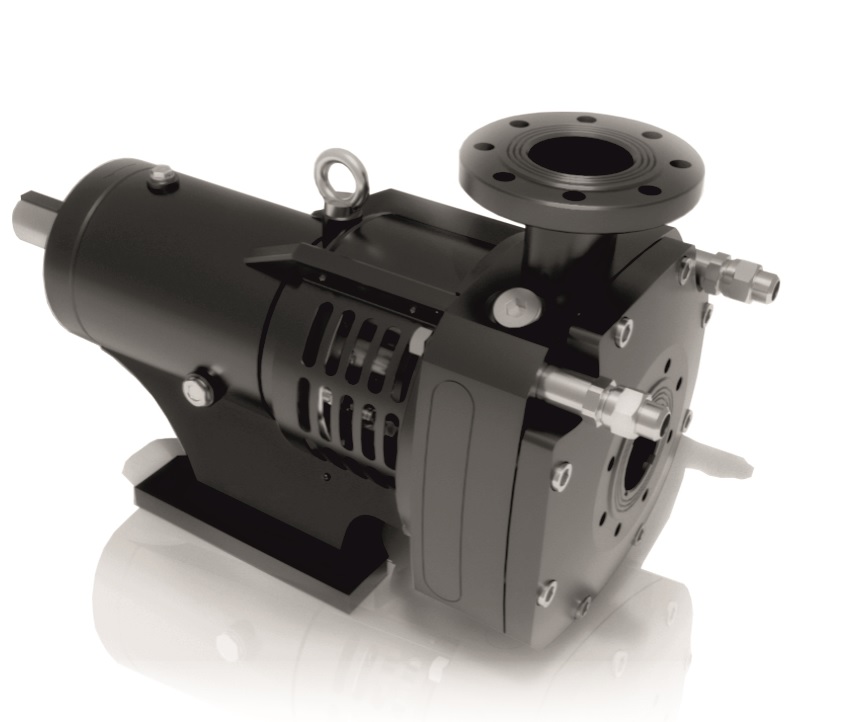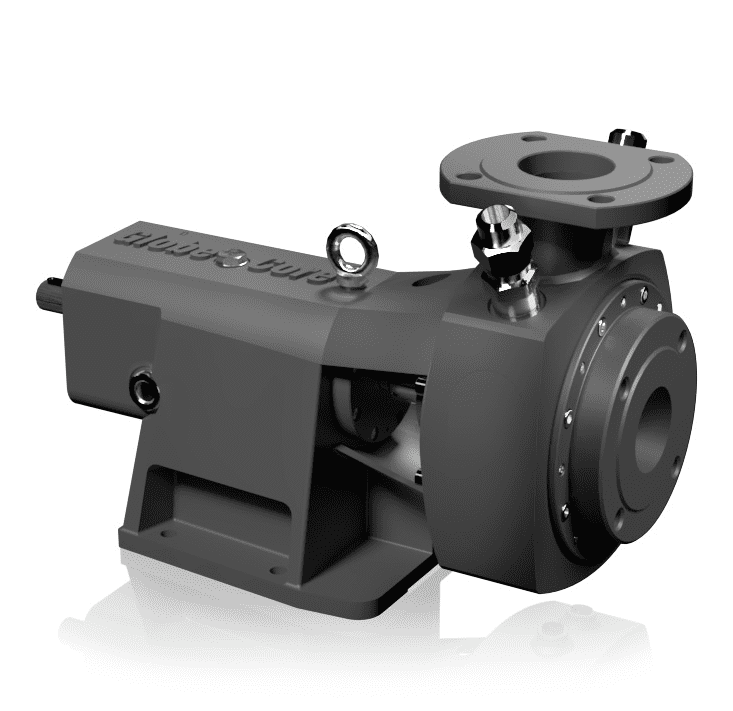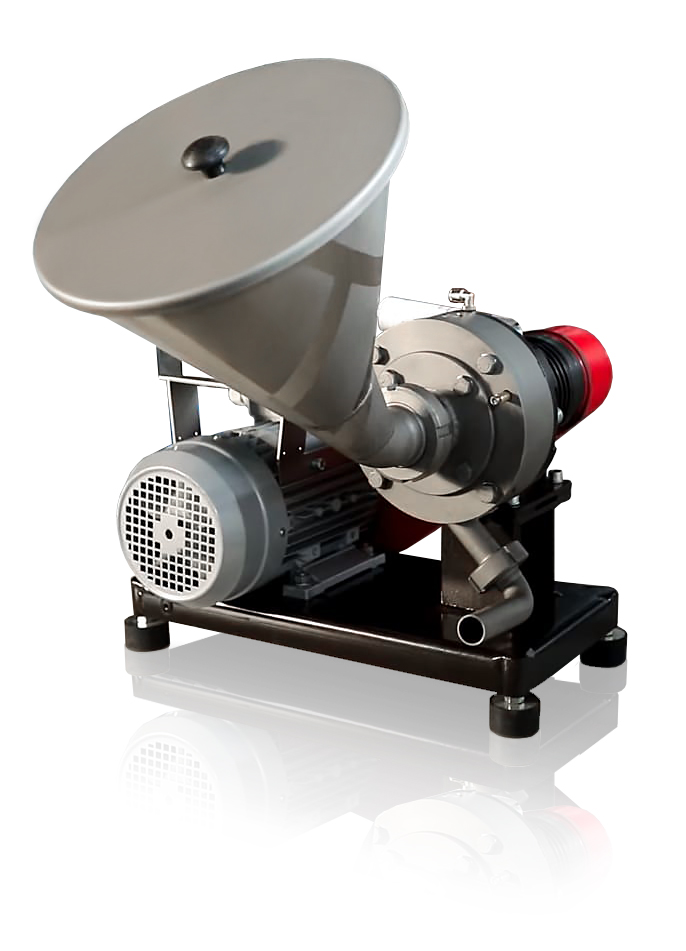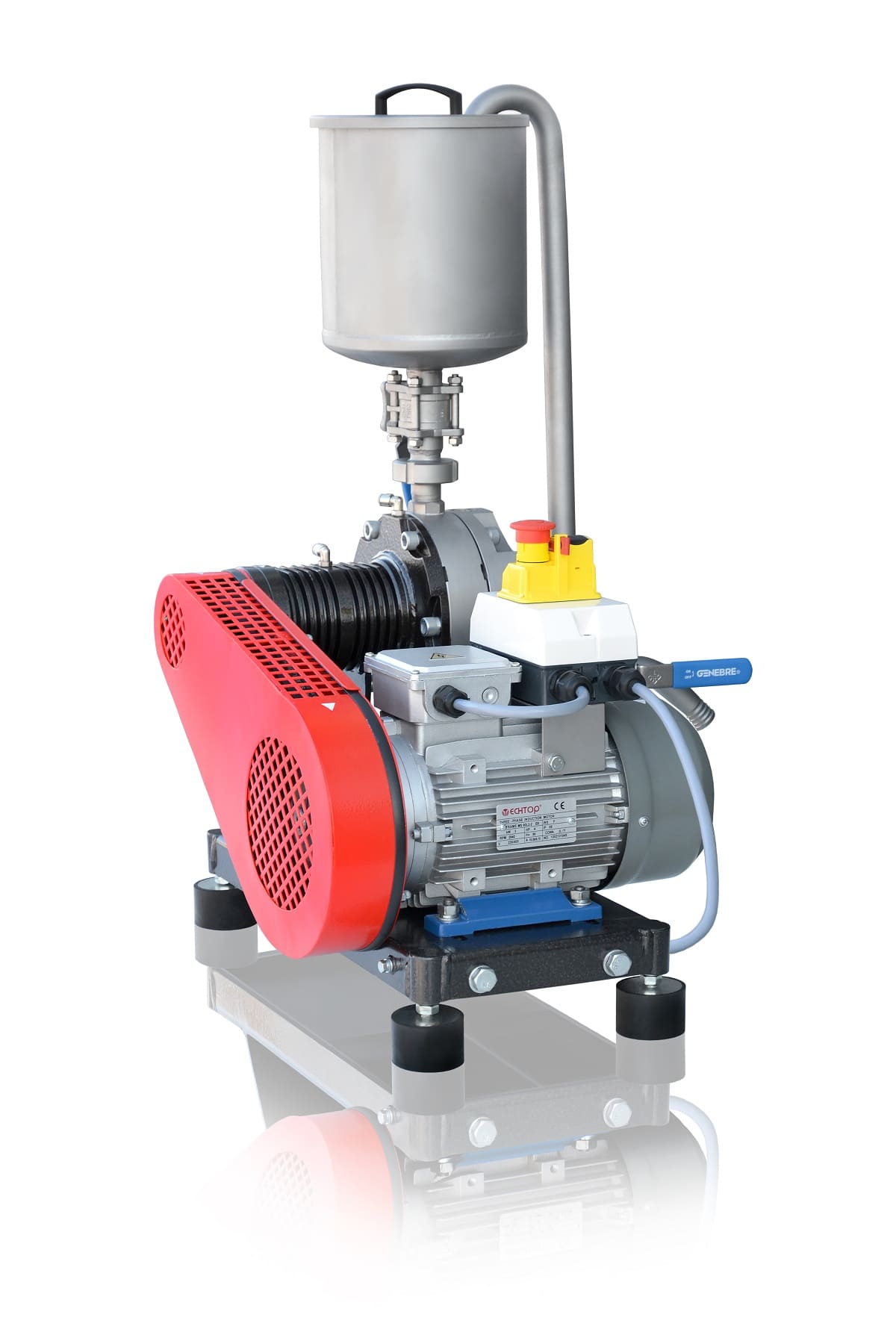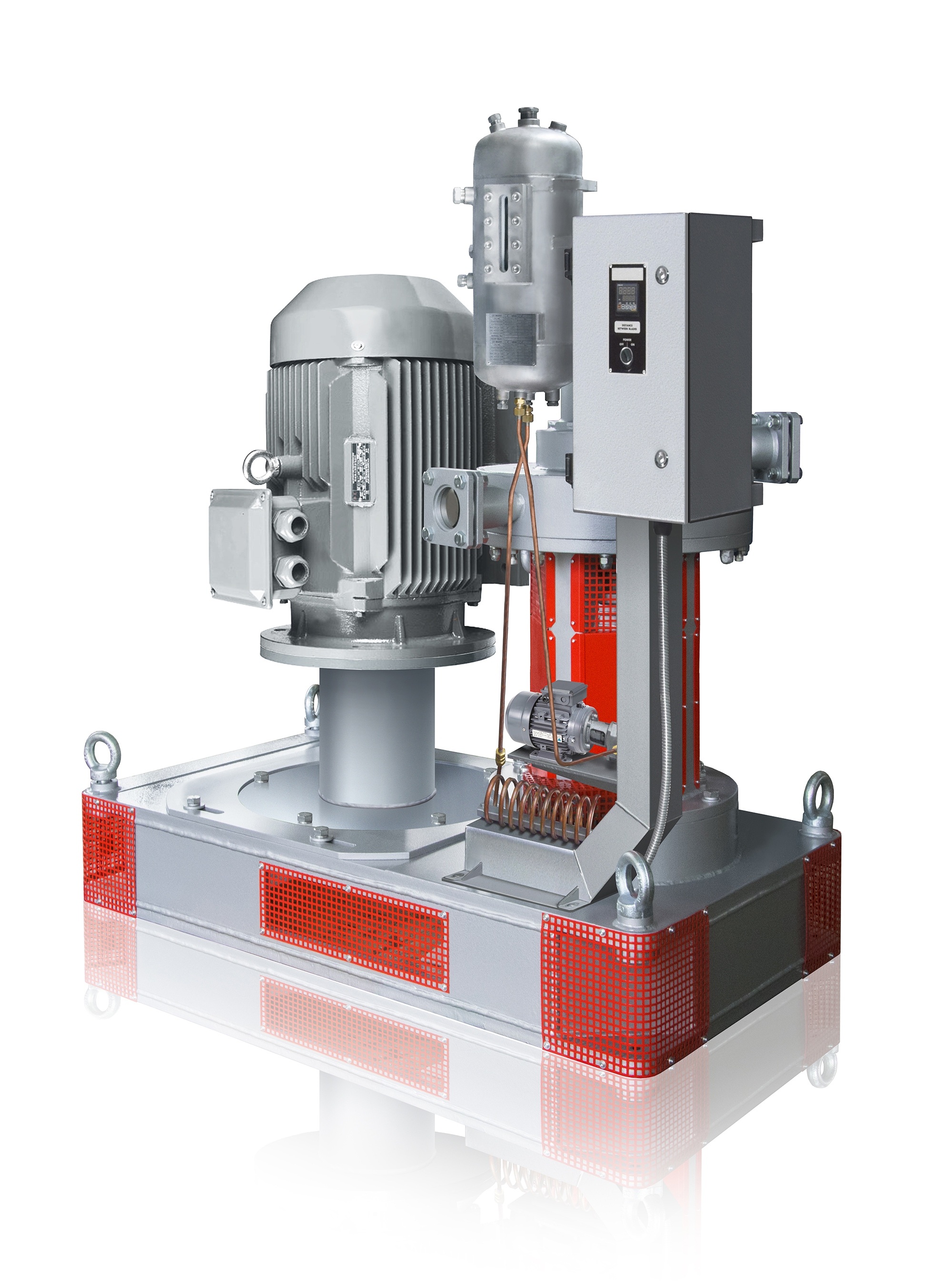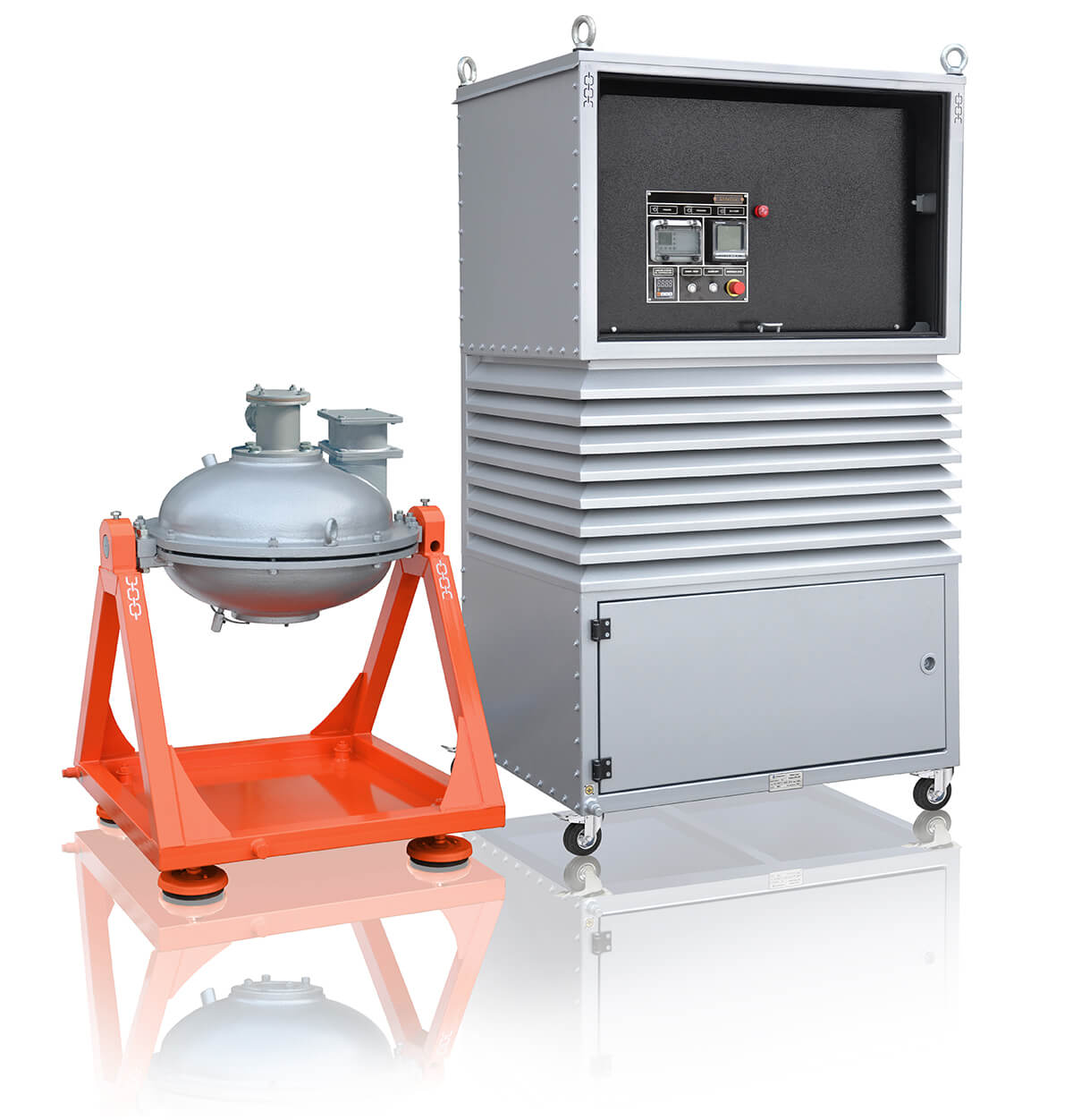Bitumen Emulsion Production. A colloid mill is a special device which performs superfine pulverization of materials. Using colloid mill allows to produce particles of one micron or even smaller.
The first colloid mill was designed by K. Plausson in the first half of the 19th century. It consisted of a stator, a rotor and a body. When particles enter the gap between the rotor and the stator, they rotate rapidly, and the centrifugal force tears the particles apart. The grade of pulverization can be adjusted by changing the gap between the rotor and the stator.
GlobeCore has developed colloid mills to be used in production of bitumen emulsions. They can produce both regular bitumen emulsions and emulsions modified by polymer.
The interaction between the rotor and the stator is optimized so that the size distribution range of the pulverized bitumen particles is narrow. This allows to make stable bitumen emulsion with high viscosity, which is especially important in production of high bitumen content emulsion.
The CLM colloid mill allows to disperse and homogenize bitumen at the same time. A heating jacket is provided to apply heat in the pulverization area.
GlobeCore colloid mills feature high rate of processing and pulverize bitumen to 1 micron particles. The CLM mill can be retrofitted easily into existing bitumen emulsion and modified bitumen production lines.
For high quality of grinding, it is necessary to supply the raw material at a certain proportion of solid and liquid phase at constant rate.
Another advantage of GlobeCore equipment is the ability to adjust the grade of pulverization and the pumping performance.


